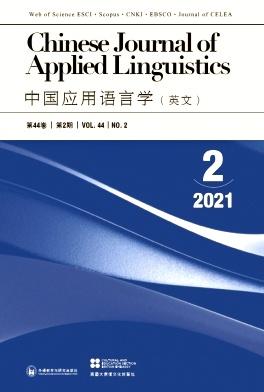同伴评议圈:三合一小组和口头观察同伴反馈在学生反馈素养发展中的价值
IF 1.1
4区 教育学
Q3 EDUCATION & EDUCATIONAL RESEARCH
引用次数: 0
摘要
关于同伴反馈的有效性的争论越来越多,特别是学习者积极参与反馈并采取行动的方式(Lam, 2017)。然而,研究表明,管理良好的同伴反馈可以带来许多社交、认知和语言方面的好处(Sun & Doman, 2018)。本文考察了来自缅甸的24名英语教师的看法,他们体验并评估了一种组织同行反馈过程的新方式,即同行评议圈(prc)。在prc中,学习者以三人一组的方式学习,其中两个人对第三个人的学习给予反馈,第三个人倾听,反思,然后才对评论做出回应。结果发现,教师认为这种安排增加了反馈的数量、种类和可靠性,创造了更有利的反馈氛围,有助于“软/可转移”技能的发展。受访者认为,教师和学习者对这种新方法不熟悉、时间限制和意见冲突的可能性是prc的潜在困难。为了克服这些问题,受访者建议向教师和学习者提供培训,特别是通过建模。本文阐明了管理同伴反馈的一种不同方式,即prc,强调了在三元组中工作比二元组工作的好处,以及口头观察同伴反馈对培养学生反馈素养的价值。关键的含义涉及到同行评议培训,以及不仅需要关注程序方面,还需要关注培养学习者的情感能力,以帮助他们在当今的教育环境中保持语言学习。本文章由计算机程序翻译,如有差异,请以英文原文为准。
Peer Review Circles: The Value of Working in Triadic Groups and Oral Observational Peer Feedback in the Development of Student Feedback Literacy
Abstract There has been increasing debate about the effectiveness of peer feedback, especially the way learners actively engage with and act upon the feedback (Lam, 2017). Yet research has shown that well-managed peer feedback offers a host of social, cognitive and linguistic benefits (Sun & Doman, 2018). This paper looks at the perceptions of 24 teachers of English from Myanmar who experienced and evaluated a new way of organizing the peer feedback process known as Peer Review Circles (PRCs). In PRCs, learners work in groups of three, with two giving feedback on the work of the third, who listens, reflects on and only then responds to the comments. It was found that teachers perceived this arrangement to increase the quantity, variety and reliability of feedback, create a more conducive feedback atmosphere and aid the development of “soft/transferable” skills. Respondents identified teachers’ and learners’ lack of familiarity with this new approach, time constraints and the possibility of conflicting comments as potential difficulties of PRCs. To overcome these, respondents suggested providing training to teachers and learners, especially through modelling. This paper sheds light on a different way of managing peer feedback, PRCs, highlighting the benefits of working in triadic over dyadic groups and the value of oral observational peer feedback to develop students’ feedback literacy. The key implications relate to peer review training and the need to focus not just on procedural aspects but also on developing learners’ emotional competence to help sustain their language learning within today’s educational landscape.
求助全文
通过发布文献求助,成功后即可免费获取论文全文。
去求助
来源期刊

Chinese Journal of Applied Linguistics
EDUCATION & EDUCATIONAL RESEARCH-
CiteScore
1.50
自引率
0.00%
发文量
377
期刊介绍:
The Chinese Journal of Applied Linguistics (CJAL) (formerly known as Teaching English in China – CELEA Journal) was created in 1978 as a newsletter by the British Council, Beijing. It is the affiliated journal of the China English Language Education Association (founded in 1981 and now the Chinese affiliate of AILA [International Association of Applied Linguistics]). The Chinese Journal of Applied Linguistics is the only English language teaching (ELT) journal in China that is published in English, serving as a window to Chinese reform on ELT for professionals in China and around the world. The journal is internationally focused, fully refereed, and its articles address a wide variety of topics in Chinese applied linguistics which include – but also reach beyond – the topics of language education and second language acquisition.
 求助内容:
求助内容: 应助结果提醒方式:
应助结果提醒方式:


